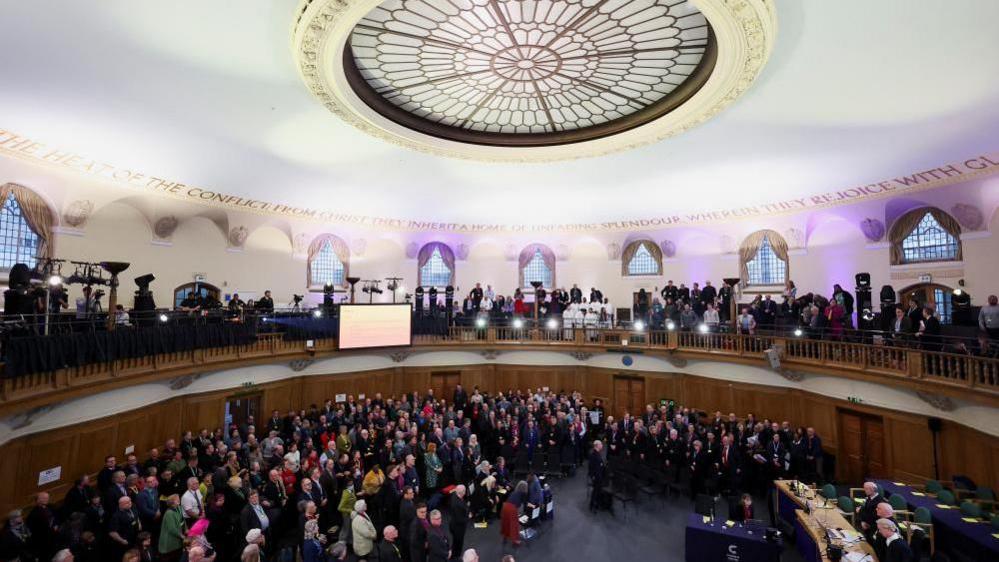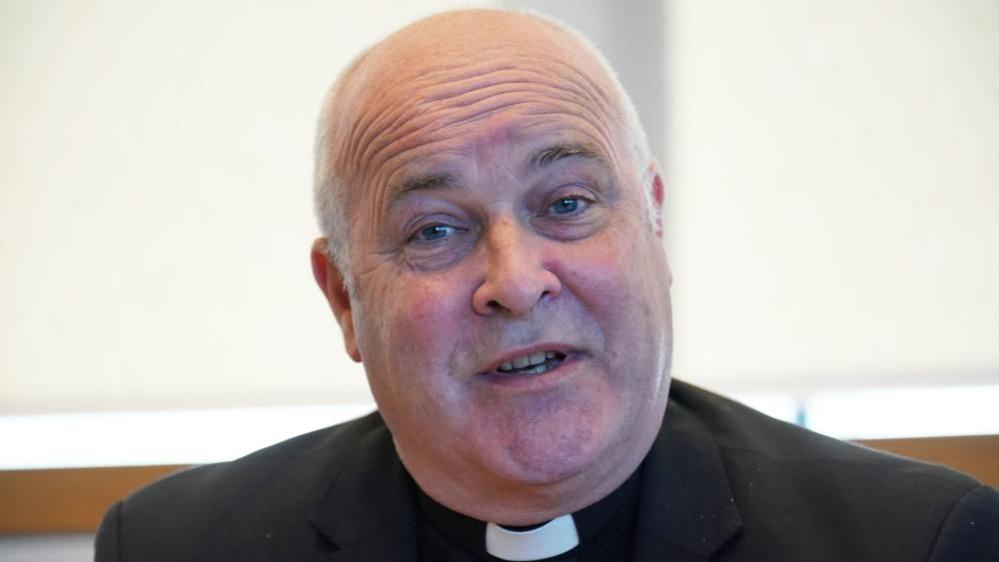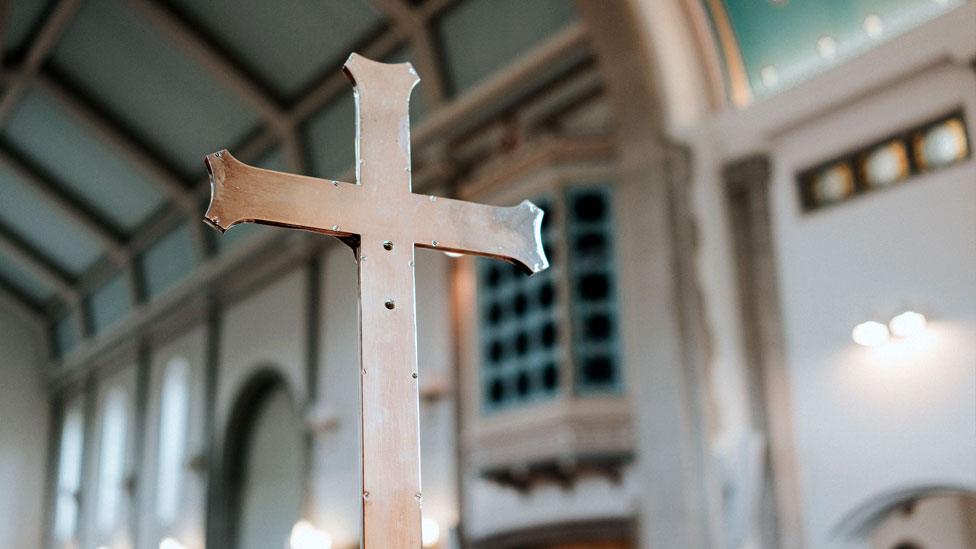Church of England rejects fully independent safeguarding

- Published
The Church of England's governing body has rejected a fully independent safeguarding model to deal with abuse cases.
General Synod members instead adopted an alternative proposal described as a "way forward in the short term" ahead of a move to full independence in the future.
But child safety expert Prof Alexis Jay - who had called for a fully independent model - described the decision as "deeply disappointing" and "devastating for victims and survivors".
The vote comes after a turbulent period for the Church, which has seen the resignation of former Archbishop of Canterbury Justin Welby over his handling of an abuse case and criticism of Archbishop of York Stephen Cottrell's links to another.
Mr Cottrel, who has stepped in as temporary head of the Church, said he supported "independence in safeguarding" and was "disappointed" that it would now happen "two stages".
He added that he would "fully commit" himself to "implementing synod's decision and making it happen".
The Church has been accused of failings over the way it dealt with cases of sexual and physical child abuse spanning decades and launched a review of its safeguarding procedures.
The Synod had been expected to vote on a model backed by Prof Alexis Jay - who previously chaired the national Independent Inquiry into Child Sexual Abuse and another model.
However, following an amendment, the Prof Jay-backed model - which proposed that all safeguarding staff would be entirely independent of the Church - was not voted on at all, and a less ambitious proposal was adopted.
That will see the creation of an independent central safeguarding team for the Church - but with diocesan and cathedral safeguarding officers continuing in the same roles.
The alternative model would have also made the Church's safeguarding officers around the country part of that independent body, independent of church organisations.
Both the models that had been proposed for changing safeguarding took into account the recommendations of independent reports, including those by Prof Alexis Jay and barrister Sarah Wilkinson, the Church previously said.
Given the turmoil and negative attention the Church has garnered over recent months following major abuse scandals, adopting a more ambitious model would have undoubtedly been an opportunity to send out a clear message that it really was serious about making the Church a safer place.
Throughout the debate, many in the chamber – including Mr Cottrell, who has been under pressure and scrutiny himself – implored the synod to take up that opportunity.
Earlier, Prof Jay had said the Church risked falling further into crisis if it failed to adopt the more independent system for keeping people safe.
Speaking to BBC News after the vote, Prof Jay said: "It will be devastating for victims and survivors, whose trust and confidence will absolutely not be restored as a consequence of the decision.
"In fact, it is more likely to alienate them."
Some opponents of the more independent safeguarding model said they were simply worried it could not have been implemented.
Bishop of Blackburn Philip North - who tabled the amendment slimming down the choice put before the synod to one option - argued that the simpler model could be implemented more quickly.
He described the other option as "eye-wateringly complex" and said it could take years to implement when the Church and nation were "demanding change now".
He added that while the church implemented the changes - which would allow for a "far greater degree of independence in safeguarding" - a fully independent model was still "very much on the table" in the longer term.
However, at this crucial juncture for the Church, the optics of making a commitment to be as ambitious as possible might have been far better than what they have ended up with.
Instead, they the Church appears to have been far less bold - but with a promise they will try to do better in the future.
The vote has been strongly condemned by campaigners who have called for sweeping changes to how the Church deals with abuse.
Lucy Duckworth from the Survivors Trust told BBC News: "It is a devastating blow, not just for the victims and survivors of clerical abuse but for the one million children who attend the 4,600 schools under the Church of England's power today.
"This is a shameful disregard for the lifelong suffering that their employees and clergy have caused.
"I feel really let down, speaking both as a survivor of clerical abuse as well as a campaigner and policy adviser who represents survivors."
Andrew Graystone, a victim and survivors' advocate, said the decision to reject a fully independent safeguarding model was a "punch in the gut for victims and survivors of church abuse" and accused church leaders of "shocking arrogance".
Correction 14 February 2025: This article originally suggested that the Synod had been expected to vote on separate proposals for safeguarding by Prof Alexis Jay and barrister Sarah Wilkinson, with the Wilkinson proposal subsequently adopted. However Sarah Wilkinson's 2023 independent review into the failure of the Independent Safeguarding Board did not involve any proposals for future safeguarding models for the Church of England and we have amended our story to make that clear.
Related topics
- Published10 February

- Published21 February 2024
